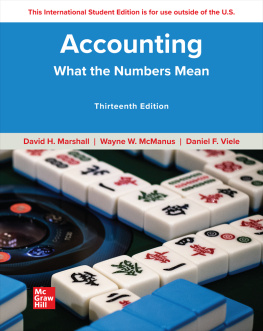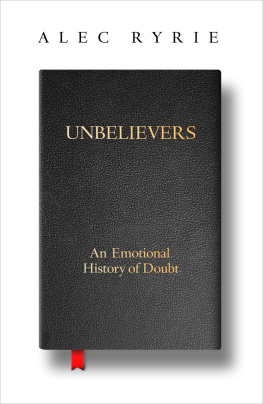First Published in 1999
by Curzon Press
Published 2013 by Routledge
2 Park Square, Milton Park, Abingdon, Oxon OX14 4RN
711 Third Avenue, New York, NY, 10017, USA
Routledge is an imprint of the Taylor & Francis Group, an informa business
1999 David Marshall
Typeset in Sabon by LaserScript Ltd, Mitcham, Surrey
All rights reserved. No part of this book may be reprinted or reproduced or utilised in any form or by any electronic, mechanical, or other means, now known or hereafter invented, including photocopying and recording, or in any information storage or retrieval system, without permission in writing from the publishers.
British Library Cataloguing in Publication Data
A catalogue record of this book is available from the British Library
Library of Congress Cataloguing in Publication Data
A catalogue record for this book has been requested
ISBN 13: 978-0-700-71086-7 (hbk)
This study is a revised version of a doctoral thesis. As often happens, by the time that the thesis was submitted its focus had shifted a long way from what had originally been in mind. Describing its evolution may help to clarify the nature of the study as it now stands. My original plan was to explore the theme of Islamic dacwah (roughly equivalent to Christian mission), and to consider some modern Muslim writers on this topic. An important issue within such a study would be the different ways in which Muslims conceive of the relationship between the Muslim ummah (community) and those outside the ummah, non-Muslims. As a preliminary exercise it seemed worthwhile to read the Quran (to which all Islamic discourse must ultimately relate itself, even if also appealing to other sources) with one particular question in mind: How does the Quran present the relationship between Muhammads followers and those outside their community? For the sake of simplicity, I will refer to this as the believerunbeliever relationship; this terminology will be discussed later.
It soon became apparent that this was a question demanding attention in its own right, and also a question which could be approached from a variety of different angles. One approach, associated with the works of Izutsu (1964, 1966), would be to study the key terms used by the Quran to describe the fundamental religious orientations of believer and unbeliever, as well as the contrast between their ways of life. Alternatively, one could emphasize that the believerunbeliever relationship must ultimately be understood in eschatological terms, as the Quran repeatedly and vividly brings to our attention the believers destiny in Paradise, and the unbelievers in Hell. Thus one could argue that it is how they will be judged on the Last Day that is central to the Quranic understanding of believer and unbeliever. It would also be fruitful to consider the powerful imagery which the Quran uses to describe believer and unbeliever, since this constantly moulds the readers imaginative grasp of their contrasting relationships with God. Another approach would draw attention to the complexity of this question, due to the difficulty involved in defining who exactly believers and unbelievers are. Jews and Christians, for example, are not Muslims, but are they unbelievers? And where Jews and Christians are accused of unbelief, what kind of Jews and Christians are in mind? And what of the hypocrites (munfiqn)? Are they believers or unbelievers? It would not be difficult to devote a major study to exploring how the Quran categorizes different types of people.
However, in this study I have adopted a different approach. This begins with a close study of the group of Quranic narratives, dating from the Meccan period, which tell the stories of the sequence of messengers who had been sent by God before Muhammad. My attention has particularly focused on those passages which depict these messengers, one after another, warning their unbelieving contemporaries of a coming punishment from God in this world (as distinct from punishment in the afterlife). In these punishment-narratives the messenger will typically criticize his people for not worshipping God alone, and perhaps for certain moral failings as well. However, he is rejected by most of his contemporaries, although he does have some obedient followers. The messenger also warns his people that, if they do not repent, they will suffer a great punishment from God. The story ends with a dramatic act of divine intervention: the unbelievers, as warned, are destroyed by God in a variety of ways (for example, the unbelievers who rejected Noah are destroyed by the Flood; another generation of unbelievers rejecting another messenger are destroyed by an earthquake, and so on). The completeness of the destruction of the unbelievers is often emphasized. The messenger and his followers are saved and vindicated.
A typical example of these punishment-narratives occurs in the following description of the preaching of the messenger Sh ucayb to his people, their unbelief and their subsequent destruction:
The men of the Thicket cried lies to the Envoys
when Sh ucayb said to them Will you not be godfearing?
I am for you a faithful messenger, so fear God and obey me.
I ask of you no wage for this; my wage falls only upon the Lord of all Being.
Fill up the measure, and be not cheaters, and weigh with the straight balance,
and diminish not the goods of the people,
and do not mischief in the earth, working corruption.
Fear him who created you, and the generations of the ancients.
They said, You are merely one of those that are bewitched;
you are nothing but a mortal, like us;
indeed, we think that you are one of the liars.
Then drop down on us lumps from heaven, if you are one of the truthful.
He said, My Lord knows very well what you are doing.
But they cried him lies;
then there seized them the punishment of the Day of Shadow;
assuredly it was the punishment of a dreadful day.
(26:17689)
This basic type of narrative occurs frequently in Meccan passages; in three surahs1 it occurs several times consecutively with reference to different messengers. There are certainly differences in each of the versions, but also a great sense of uniformity, suggesting that the repeated underlying narrative, describing the rejection of the messenger and the punishment of his people, was especially relevant to the circumstances of the Meccan period. The considerable amount of space taken up in the Quran by these narratives suggests that they are well worth further investigation.
What is the relevance of these narratives, and how do they shed any light on my question of the believerunbeliever relationship in the Quran? It is a commonplace of Western scholarship that these narratives reflect the experience of Muhammad at Mecca; the accounts of the rejection of earlier messengers by their unbelieving people reflect the experience of Muhammad being rejected by his own unbelieving people at Mecca. For example, Watt comments: In the stories of the prophets there are so many little details which fit in perfectly with what we know about Muhammad and life in Mecca, that it is difficult to avoid the conclusion that they are indeed reflections of Meccan conditions (Watt 1988, p.100; cf. Horovitz 1926, pp.2930; Cragg 1971, pp.1701). This suggests that a study of these Meccan punishment-narratives is a useful way of illuminating the Quranic perspective on the believerunbeliever relationship at Mecca.








